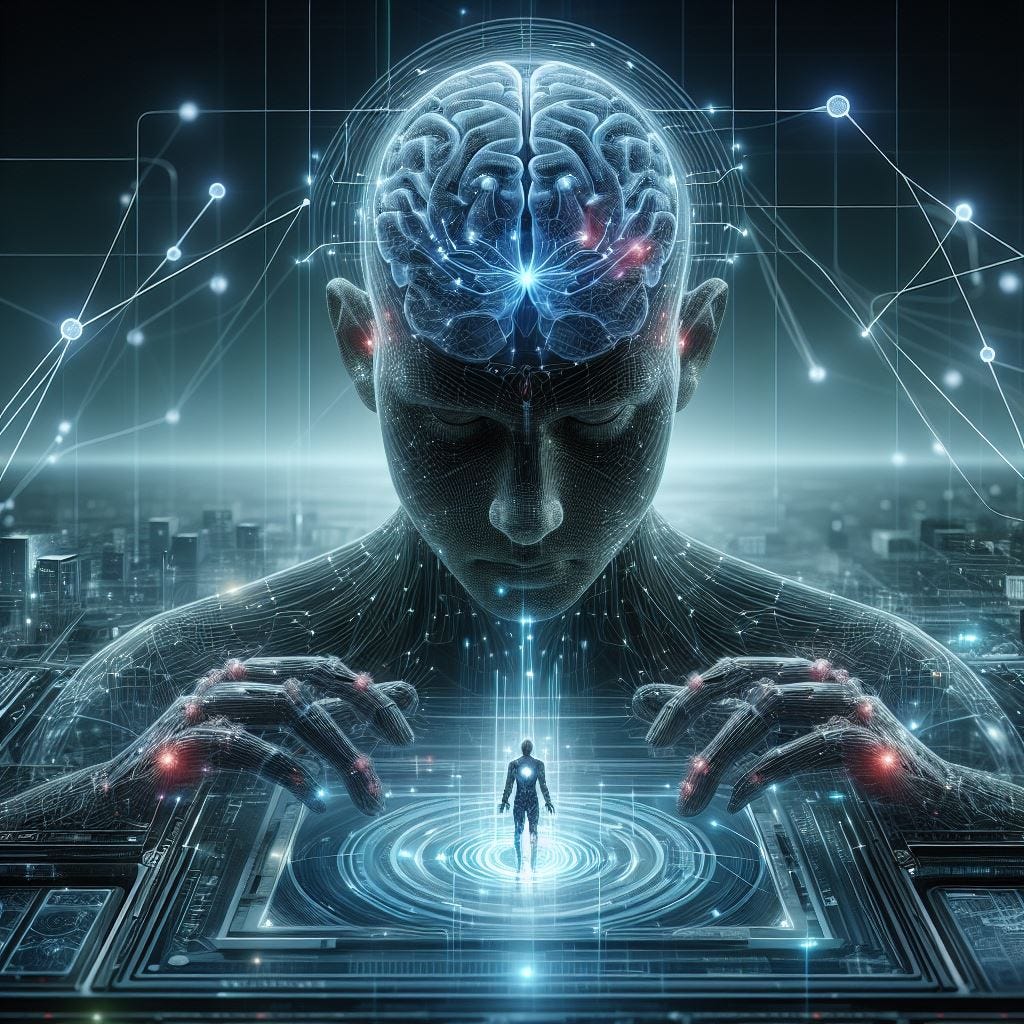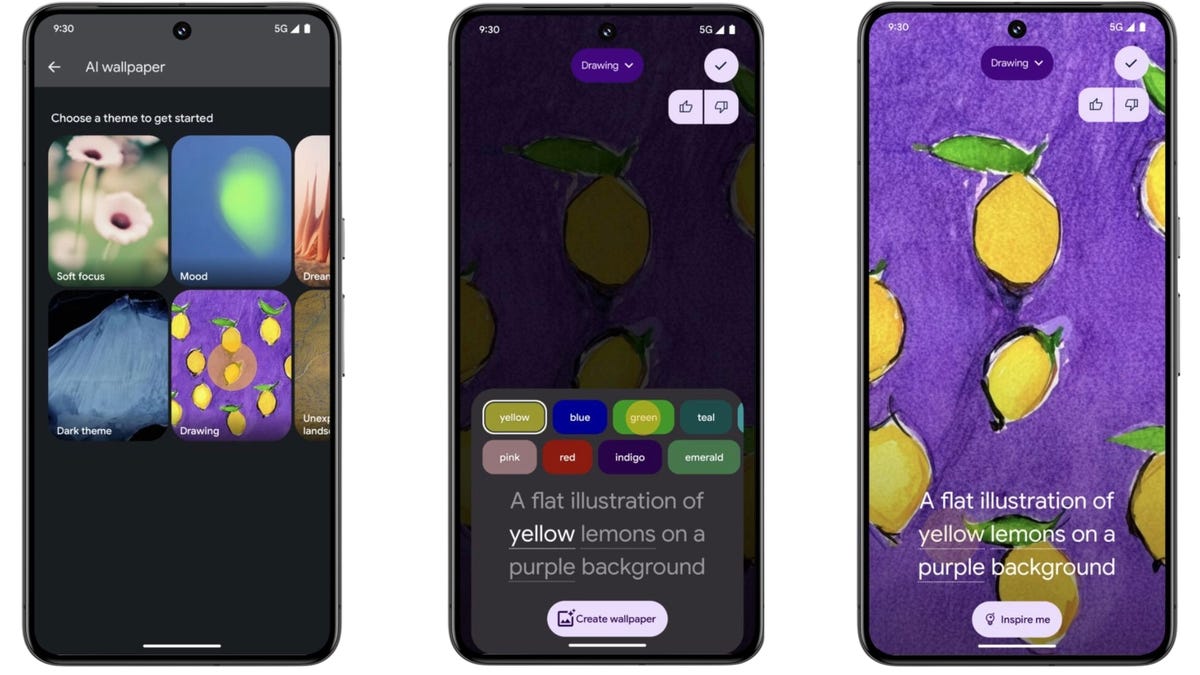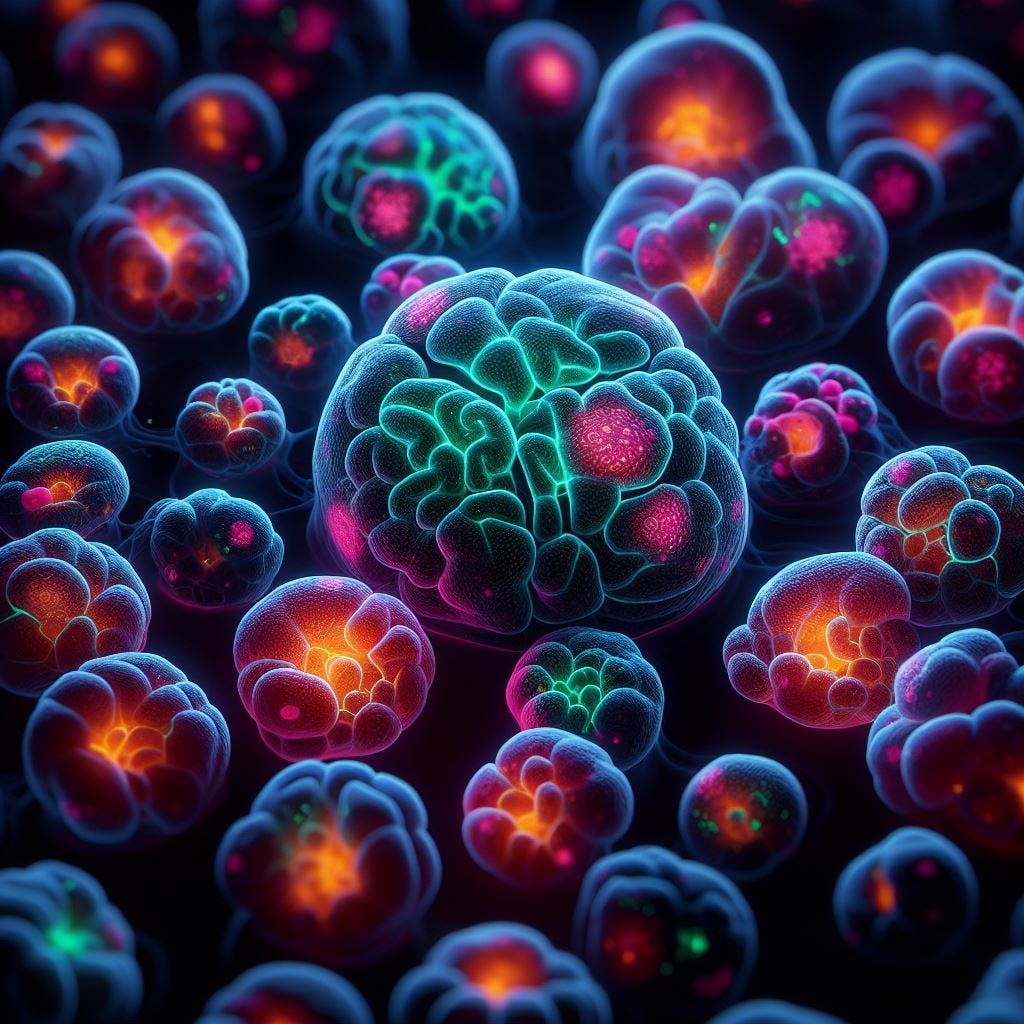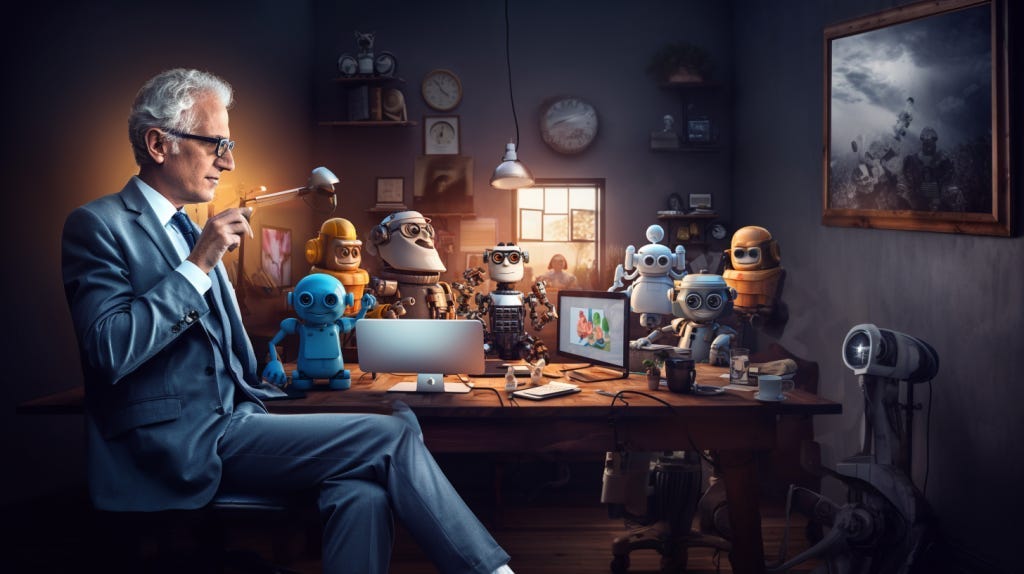Samsung Adopts AI Tech and Bitcoin Shifts with Neuralink and ETFs on the Horizon of Human Evolution
Samsung Adopts AI Tech and Bitcoin Shifts with Neuralink and ETFs on the Horizon of Human Evolution: The Convergence of Man and Machine
Samsung Adopts Google's AI Wallpapers
- Samsung implementing Google's AI-generated wallpapers in upcoming One UI 6.1 interface update
- Users can choose themes and prompts to create unique background wallpapers, similar to Pixel 8 phones
- One UI 6.1 mirrors Google's wallpaper creation but has some UI styling differences
- Signals Google passing AI torch to Samsung as update also adds weather effects, "Magic Editor," etc.
Bitcoin ETFs Could Transform Crypto as AI Altcoin InQubeta Gains Steam
- Bitcoin spot ETFs could expand investor base and reduce volatility
- As market shifts, AI altcoin InQubeta (QUBE) presale sees high demand
- QUBE utility across transactions, NFTs and staking shows strong prospects
- Innovations in AI startup funding and CoinMarketCap partnership add value
- Bitcoin ETFs transformative as InQubeta gains steam amid market evolution
Brain Organoids Show Promise for Energy-Efficient AI
- Human brain organoids linked to computers to perform basic speech recognition
- Goal is developing energy-efficient AI alternatives to power-hungry silicon chips
- Organoids reached 70-80% accuracy in identifying single voice after training
- But experts note deep learning surpasses brains for targeted tasks now
- While promising, major obstacles remain for organoid viability
Neuralink Primed to Usher in New Era of Human-Computer Interaction
- Neuralink gained FDA approval for first trails of coin-sized brain implants
- Initially to enable quadriplegics to control computers with thoughts
- Aims to widely commercialize brain interfaces for music streaming, AI links, etc.
- Envisioned to combine with Tesla robotics to create "cyborg bodies"
- Key to controlling AI threats by vastly improving human-AI communication
HEADLIME IS THE GO-TO GPT-3 TOOL FOR MARKETERS.
WRITESONIC IS ONE OF THE BEST ARTIFICIAL INTELLIGENCE-POWERED COPYWRITING GPT-3 TOOLS.
Neuralink Primed to Usher in New Era of Human-Computer Interaction
Neuralink, Elon Musk’s brain-computer interface company, has gained FDA approval to start its first human trials. The goal is to implant coin-sized devices with ultra-thin threads into patients’ brains, allowing quadriplegics to control computers with their thoughts. Neuralink estimates performing 11 procedures in 2024, scaling up to 2,224 by 2030. The threads detect neurons firing when planning hand movements, converting intentions into computer control.
Beyond medical applications, Neuralink ultimately aims for wide commercial availability of brain-machine interfaces. Possible future abilities include streaming music directly to one’s brain, downloading languages instantly, or seamlessly communicating with AI systems. Musk envisions combining Neuralink’s high-bandwidth connection with Tesla’s Optimus robot to enable a “cyborg body” for amputees.
As rapid AI advancements raise risks, Musk believes Neuralink can play a role in controlling threats, improving communication bandwidth between humans and AI “by several orders of magnitude.” With AI progress far outpacing population growth, better integration is key. While not initially impressive for healthy users, Neuralink portends a revolutionary shift in human-computer interaction. As applications advance, we approach an era where thoughts directly interface with the digital world.
Samsung Adopts Google's AI Wallpapers
Samsung is set to introduce Google's AI-generated wallpapers to its Galaxy phones with the upcoming One UI 6.1 update. Images leaked of the interface update reveal Samsung has implemented the generative wallpaper feature that allows users to choose a theme and prompt to create unique backgrounds, similar to the Pixel 8 phones. One UI 6.1 mirrors the Google wallpaper creation process while distinguishing itself through UI styling preferences. This hints at Google passing the AI torch to Samsung, as One UI 6.1 also aims to add weather lock screen effects, a “Magic Editor”, auto note formatting, and more. With Samsung gearing up to debut its Gauss AI model and extensive AI capabilities in the Galaxy S24, One UI 6.1 could mark the start of Samsung’s own AI revolution.
Bitcoin ETFs Could Transform Crypto as AI Altcoin InQubeta Gains Steam
The impending possibility of SEC-approved Bitcoin exchange-traded funds (ETFs) signals a pivotal shift for the crypto market. Analysts suggest spot ETFs could expand Bitcoin's investor base and dilute the influence of whales who spur volatility. This could introduce more stability, albeit some experts warn of increased arbitrage trading. As the market braces for potential upheaval, the AI-focused altcoin InQubeta (QUBE) is gaining steam in its presale. With over $6.5 million raised and utility across crypto transactions, NFTs, and staking, QUBE shows promise as a top crypto to buy now. Its innovations in crowdfunding for AI startups and partnership with CoinMarketCap also boost its prospects. As Bitcoin ETFs loom, transformative change is afoot in crypto, and InQubeta emerges as an asset to watch.
Brain Organoids Show Promise for Energy-Efficient AI
Researchers have developed "Brainoware," a system linking human brain organoids to a computer to perform basic speech recognition. Feng Guo of Indiana University led a team that grew brain organoids, essentially miniature brains, and placed them on a microelectrode array to facilitate communication between the biological and artificial components. The goal is to create AI systems that harness the energy efficiency of living nerve cells to overcome limitations of silicon chips. For their initial test, the team taught organoids to recognize a single individual's voice out of 240 audio clips with 70-80% accuracy after two days of unsupervised training, illustrating the system's capacity for adaptive learning. However, experts note current deep learning models surpass brains for targeted tasks, and organoids face constraints around lifespan and performance. While proof-of-concept results showcase potential, researchers must still confront obstacles for biocomputing and brain organoids to become viable alternatives to conventional AI.










